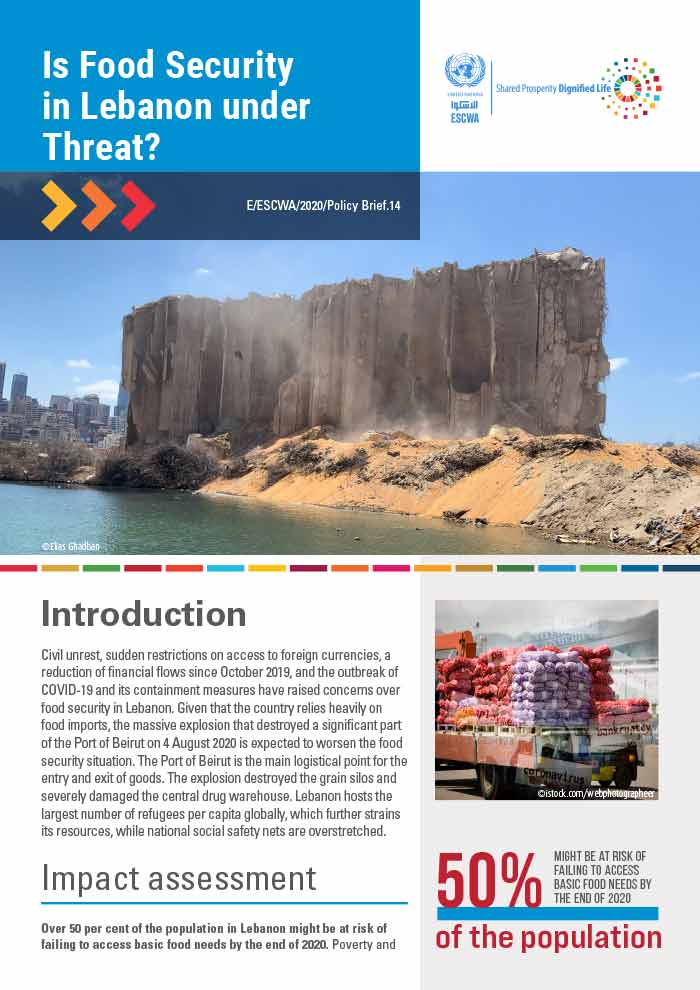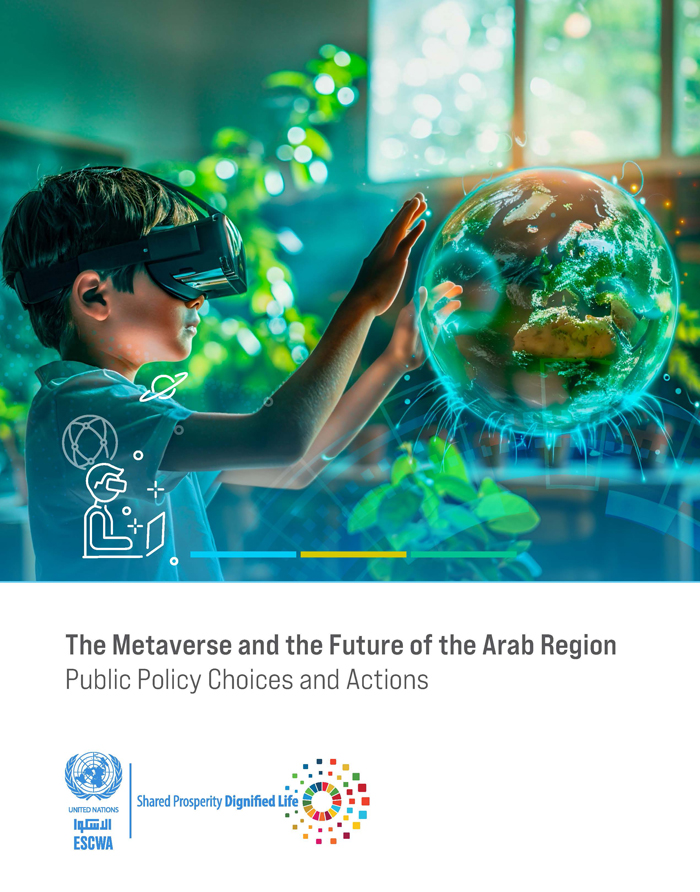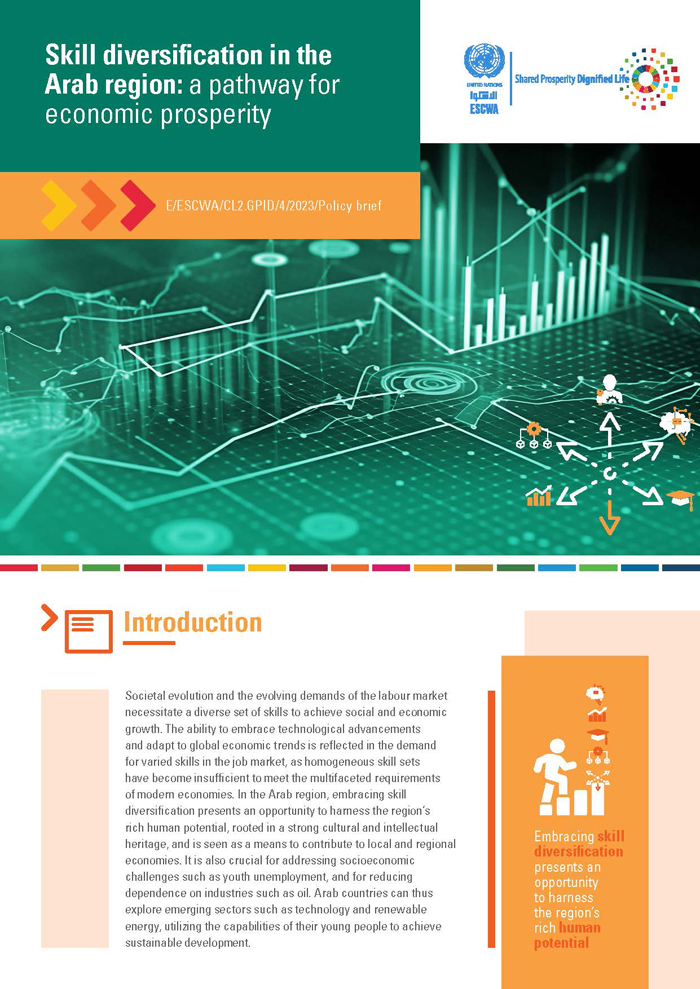
ESCWA Publication: E/ESCWA/2020/Policy Brief.14
Country: Arab region, Lebanese Republic
Publication Type: Policy briefs
Cluster: 2030 Agenda and SDG Coordination
Focus Area: 2030 Agenda
Initiatives: Promoting food and water security
SDGs: Goal 1: No Poverty, Goal 2: Zero Hunger
Keywords: Covid-19, Agricultural development, Agricultural price supports, Food prices, Food security, Food shortage, Food supply, Household expenditures
Is food security in Lebanon under threat?
August 2020
Civil unrest, sudden restrictions on access to foreign currencies, a reduction of financial flows since October 2019, and the outbreak of COVID-19 and its containment measures have raised concerns over food security in Lebanon. Given that the country relies heavily on food imports, the massive explosion that destroyed a significant part of the Port of Beirut on 4 August 2020 is expected to worsen the food security situation. The Port of Beirut is the main logistical point for the entry and exit of goods. The explosion destroyed the grain silos and severely damaged the central drug warehouse. Lebanon hosts the largest number of refugees per capita globally, which further strains its resources, while national social safety nets are overstretched.
Related content
2030 Agenda
,
Civil unrest, sudden restrictions on access to foreign currencies, a reduction of financial flows since October 2019, and the outbreak of COVID-19 and its containment measures have raised concerns over food security in Lebanon. Given that the country relies heavily on food imports, the massive explosion that destroyed a significant part of the Port of Beirut on 4 August 2020 is expected to worsen the food security situation. The Port of Beirut is the main logistical point for the entry and exit of goods. The explosion destroyed the grain silos and severely damaged the central drug warehouse. Lebanon hosts the largest number of refugees per capita globally, which further strains its resources, while national social safety nets are overstretched.


